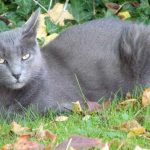The Manx cat is one of the most fascinating and distinctive breeds in the feline world. Known for its unique tailless appearance and playful personality, the Manx has captured the hearts of cat lovers for generations. But what makes this breed so special? From its rich history on the Isle of Man to its rare genetic traits, the Manx cat offers much more than just a cute face.
In this guide, we’ll explore everything that sets Manx cat breeds apart from their origins and physical characteristics to their temperament, care needs, and why they make such wonderful companions. If you’re curious about this rare and remarkable breed, keep reading, you’re about to discover why the Manx cat is truly one of a kind.
History and Origin
The Manx cat hails from the Isle of Man, a small island in the Irish Sea. This breed’s most famous trait—its missing tail—is the result of a natural genetic mutation that became prevalent due to the island’s isolated population of cats. The Manx has been around for centuries, with records of tailless cats on the Isle of Man dating back to the 18th century.
According to local legends, Manx cats were aboard Spanish Armada ships that wrecked near the Isle of Man in the 16th century. While this makes for an interesting story, the breed is more likely the result of spontaneous genetic mutation rather than foreign influence.
Physical Characteristics
The Manx cat is medium-sized, muscular, and well-balanced. While the lack of a tail is its most famous feature, not all Manx cats are completely tailless. They are classified into different categories based on tail length:
- Rumpy – Completely tailless (most famous type)
- Rumpy Riser – A small stub or bump where the tail would be
- Stumpy – A short, partial tail
- Longy – A nearly full-length tail
Manx cats have rounded features, including a broad chest, short back, and strong hind legs that are longer than their front legs, giving them a distinctive hopping gait.
Their coat can be short-haired or long-haired (the latter sometimes called “Cymric”), and they come in a wide variety of colors and patterns, from solid to tabby, tortoiseshell, and calico.
Personality and Temperament
The Manx is known for its intelligent, affectionate, and playful nature. These cats form strong bonds with their humans and are often described as “dog-like” due to their loyalty and love for fetching toys.
Key Personality Traits:
- Highly intelligent – They quickly learn tricks and enjoy puzzle toys.
- Loyal and affectionate – Many Manx cats follow their owners around like a shadow.
- Excellent hunters – Originally bred as mousers, they still retain strong hunting instincts.
- Sociable but selective – They get along well with family members and other pets but may be cautious around strangers.
Some Manx cats even enjoy water and can be more vocal than other breeds, though they are not overly talkative.
Caring for a Manx Cat
Manx cats are relatively low-maintenance, but their unique body structure requires special attention.
Diet and Nutrition
A high-protein, balanced diet is essential for maintaining their muscular build. Quality commercial cat food or a vet-approved homemade diet works best.
Exercise and Playtime
- Manx cats are energetic and need regular playtime.
- Interactive toys, puzzle feeders, and climbing structures are ideal.
- Many Manx cats love playing fetch, making playtime extra fun!
Grooming
- Short-haired Manx need weekly brushing.
- Long-haired Manx (Cymric) require more frequent grooming to prevent mats and tangles.
- Regular nail trimming and ear cleaning are essential.
Health Considerations
While generally healthy, the Manx breed can be prone to Manx Syndrome, a spinal condition affecting tailless cats. This can lead to problems like incontinence, bowel issues, and mobility challenges. Responsible breeders work to minimize this risk.
Other potential health concerns include:
- Arthritis (due to their unique skeletal structure)
- Digestive issues
- Obesity (if not given enough exercise)
Regular vet checkups help ensure a long, healthy life for your Manx cat.
Is a Manx Cat Right for You?
A Manx cat can make a fantastic companion if you’re looking for a playful, affectionate, and intelligent pet. They thrive in homes where they receive plenty of interaction and mental stimulation. Their hunting skills make them excellent for households looking for a natural pest controller!
However, if you’re considering a tailless Manx, be prepared for potential health concerns and ensure you adopt from a responsible breeder or shelter that prioritizes health screening.
Fun Facts About Manx Cats
- The Manx cat is featured on Isle of Man currency and stamps.
- Their powerful back legs allow them to jump unusually high.
- Manx cats are known to “bunny-hop” when they run due to their leg structure.
- Despite their small population, the Manx has remained popular in cat shows worldwide.
Final Thoughts
The Manx cat breed is truly a marvel of nature, its tailless body, strong build, and affectionate personality make it stand out among all feline breeds. Unlike many cats, the Manx combines a playful spirit with remarkable intelligence, making it both entertaining and deeply loyal to its family.
Whether you’re drawn to their unique physical traits or their loving nature, owning a Manx cat is a rewarding experience. They thrive on companionship, adapt well to family life, and bring endless joy to any home. However, it’s important to understand their grooming, health, and exercise needs to ensure they live a happy and healthy life.
If you’re considering adding a Manx cat to your family, you’re choosing a rare and extraordinary breed that will shower you with love and companionship for years to come. Their uniqueness is not just in their looks but also in the bond they share with their owners truly a cat breed worth knowing and cherishing.
FAQs About Manx Cat Breeds
Q1: Why are Manx cats tailless?
The Manx cat’s tailless feature is the result of a natural genetic mutation, making it one of the breed’s most distinctive characteristics.
Q2: Are Manx cats rare?
Yes, Manx cats are relatively rare and highly sought after by cat enthusiasts, especially purebred ones.
Q3: Do Manx cats make good pets?
Absolutely! They are affectionate, intelligent, and playful, making them great companions for families and individuals.
Q4: What is the average lifespan of a Manx cat?
Manx cats typically live 12–16 years, provided they receive proper care, a balanced diet, and regular vet checkups.
Q5: Are there health concerns with Manx cats?
Yes, some Manx cats may experience spinal issues known as Manx Syndrome, so choosing a responsible breeder is crucial.


